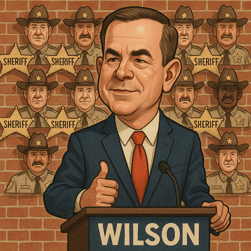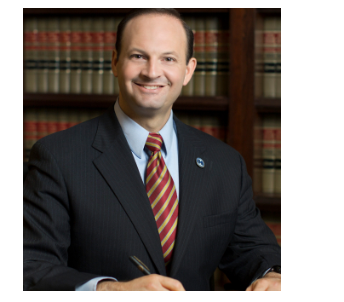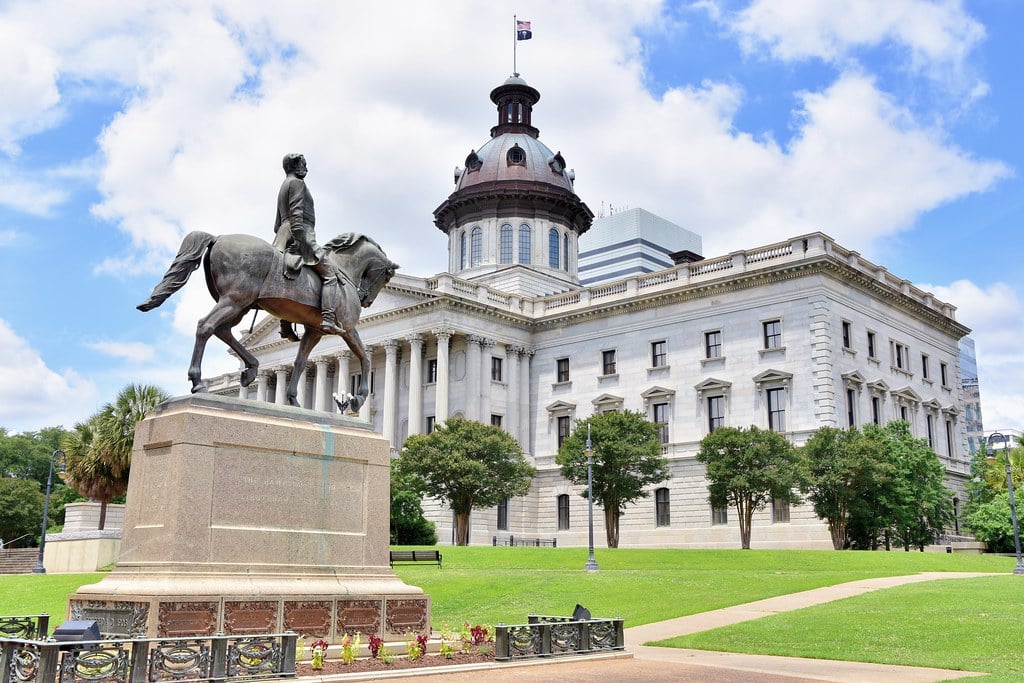South Carolina’s top prosecutor is betting that a law-and-order brand can carry him to the governor’s mansion.
What to Know:
- Wilson launched his campaign on promises of cutting waste and boosting transparency
- He’s secured endorsements from nearly two dozen sheriffs statewide
- His record includes human trafficking reforms and expanded internet crimes units
- Priorities: infrastructure, school choice, economic growth, and eliminating state income tax
- He’s positioning as both a conservative reformer and law enforcement ally
Alan Wilson has been South Carolina’s Attorney General for 15 years, but his sights are set higher. In a sit-down interview with the Greenville News, Wilson rolled out a gubernatorial platform heavy on fiscal discipline, law-and-order credibility, and education reform. His strategy to stand out in a crowded Republican field? Emphasizing his record as a crime fighter and his strong ties to sheriffs.
From Prosecutor to Power PlayerWilson isn’t just another Republican with a résumé. His personal story reads like a campaign script: son of a fallen Vietnam veteran, adoptive son of Congressman Joe Wilson, Iraq War veteran, husband who leaned on faith during his wife’s cancer fight. Add in the fact that all four Wilson brothers became Eagle Scouts and military officers, and it’s clear the candidate is framing himself as the embodiment of service, duty, and tradition.

Attorney General, Alan Wilson; photo via website
That biography dovetails neatly with his record as Attorney General. He touts the creation of South Carolina’s first human trafficking task force, reforms to victim services, and a dramatic expansion of the Internet Crimes Against Children Task Force. Wilson wants voters to see a straight line: from military service to courtroom battles to statewide reform, all proving he’s ready for the executive office.
Building a Sheriff’s Wall
The crown jewel of Wilson’s campaign launch has been endorsements from nearly two dozen sheriffs. This move is more than symbolic; it's a strategic maneuver. Sheriffs still carry enormous political weight in Southern politics, particularly in rural counties where “backing the badge” signals loyalty to community order and conservative values.

Image by DALL-E
Wilson plans an advisory council of law enforcement leaders, in addition to endorsements. He aims to forge an institutional alliance, positioning himself as the candidate for safety and order. This approach is typical of Southern Republican politics, where candidates use their law enforcement experience to attract moderate suburban voters while simultaneously appealing to the MAGA base's emphasis on security.
Fiscal Hawk Meets Culture-Conservative
Wilson’s platform blends red-meat conservatism with technocratic reform. He’s promising to eliminate the state income tax, expand school choice and dual-enrollment programs, and crack down on government waste through a beefed-up inspector general’s office.
He emphasizes that "as attorney general, you can’t sue away waste and stupidity," asserting that only as governor can he effectively address fraud and mismanagement. That’s a fiscal conservative’s rallying cry, but Wilson pairs it with infrastructure upgrades and economic growth pledges meant to appeal beyond the hard right.
He emphasizes investments in reading and math, and opportunities for high school students to earn college credits, reassuring parents that "school choice" encompasses affordability and access, not solely charter schools.
The Southern Republican Playbook
Wilson’s positioning fits into a broader template. Southern Republicans with statewide office experience often pivot to governor by wrapping themselves in law-and-order credibility while promising tax relief and growth. The trick is to remain close enough to the Trump base to avoid primary challenges, but polished enough to reassure suburban voters worried about competence and the cost of living.
In this sense, Wilson mirrors figures like Georgia’s Brian Kemp and Florida’s Ron DeSantis in their earlier runs; Republicans who blended populist edge with institutional gravitas. Wilson isn’t running as a culture warrior alone; he’s running as the disciplined cop-lawyer who can manage the state.
Wrap Up
Alan Wilson’s campaign launch signals more than just another Republican in the South gunning for higher office. It’s a test case for how law-and-order conservatives are branding themselves for executive roles: tough on crime, hawkish on spending, pragmatic on growth. With nearly two dozen sheriffs already in his corner, Wilson has built an early coalition that ties grassroots trust to institutional credibility.
The key question remains: can this approach surpass the strategies of rivals such as Lt. Gov. Pamela Evette or Rep. Ralph Norman? It also raises the question of whether South Carolina Republicans prefer a governor focused on security and fiscal restraint, or one who embodies a more flamboyant MAGA image. Wilson's strategy is evident: he believes that a platform of competence, credibility, and strong law enforcement could secure his victory.





.png)